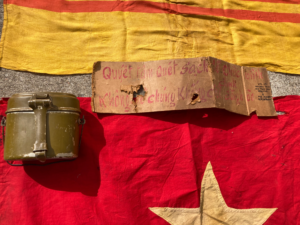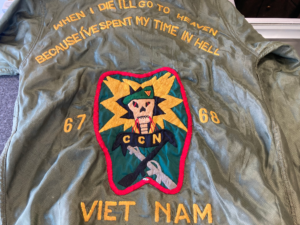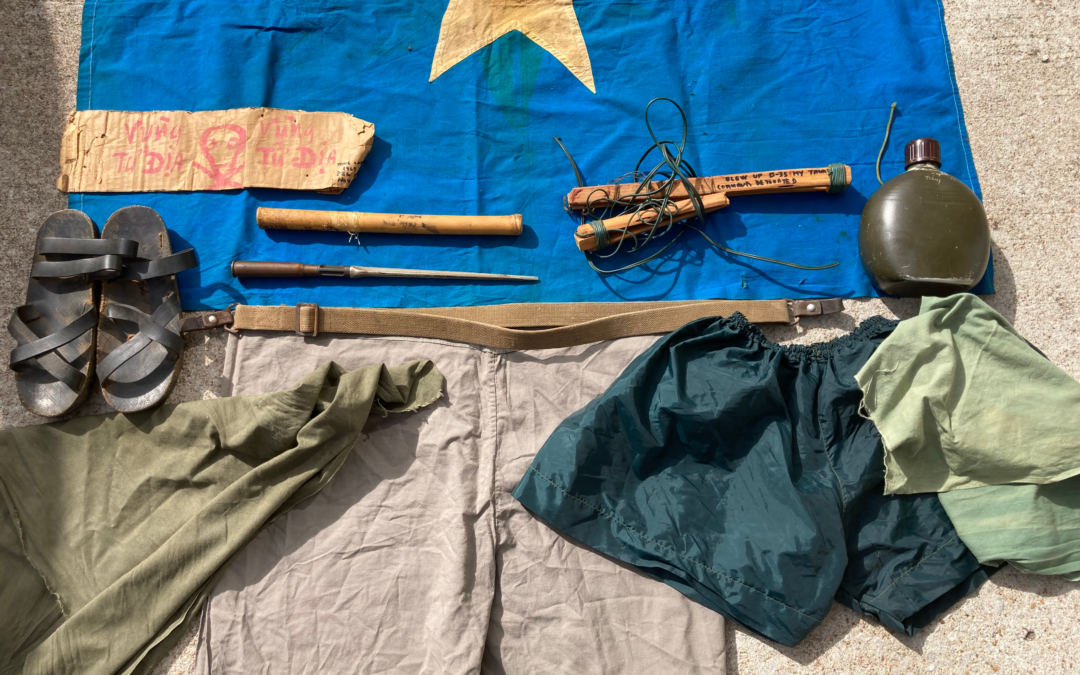In the past I have focused on WWI and WWII items. This month I would like to talk about the other wars of the Twentieth Century, Korea and Vietnam. Last summer I purchased a large accumulation of US military items from a family in Salina, Kansas. There were several nice North Vietnamese and Viet Cong souvenirs. What was unusual was that many of these items were marked by the soldier that brought them back Platoon Sergeant Robert H. Maxey. The rule in militaria collecting is that you buy the item not the story that often comes with it. When I first saw the items I was disappointed that many were marked with a black magic marker.
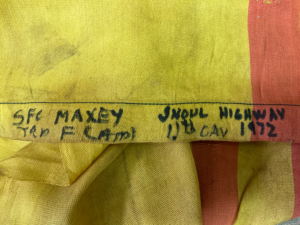
Later I learned that Maxey was born in the Philippine Islands on 24 December 1928 the son of an American Soldier and a Filipino native mother. The family had a ranch that was overrun during the Japanese invasion. Maxey was 14 and along with his brothers joined the Philippine Resistance. He was later captured by the Japanese and escaped from the camp during a typhon. After WWII Maxey spent a short time in the US Merchant Marine and then joined the Army. He was sent to Korea in September 1950 and was quickly wounded and evacuated to the US. He returned to Korea in August 1952 and was captured by the Chinese Communists and spent six months in a POW camp. When the Korean Armistice was declared Maxey was repatriated back to the US. For the next 14 years he served in a variety of positions in both Germany and the US. In 1967 Maxie was assigned to a unit serving in the Republic of Vietnam (RVN) where he ultimately served three tours of duty. These souvenirs were found during this time. He retired from the Army in 1976 with 30 years of service and settled in Salina, Kansas. Maxie was active in local Veteran’s affairs and passed away in 2017.

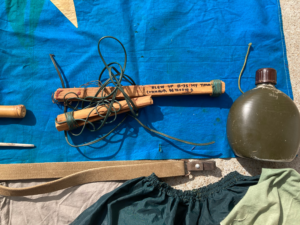
A controversy about Maxie’s awards erupted after his death. His obituary listed his awards as 2 Distinguished Service Crosses, 4 Silver Stars, 12 Purple Hearts and 9 Bronze Stars. His service records document 2 Silver Stars and 2 Bronze Stars. He also claimed the Combat Infantry Badge (CIB) with two stars. However, the Army did not credit his WWII service in the Philippines as he was not officially a member of the US Army. It is not for me to say how his awards were embellished.
In, conclusion war souvenirs from the Korean Conflict and the Vietnam War are very collectible. People from all over the world reenact and collect these items. The majority of these items were brought back by career Soldiers both Officers and NCOs. After 1968 the war in Vietnam became extremely unpopular and returning Soldiers cared little about the material culture of the war and only wanted to forget this experience. There sentiment was captured in many tour jackets like the one below. Remember focus on the authenticity of the item and not the story that comes with it!
